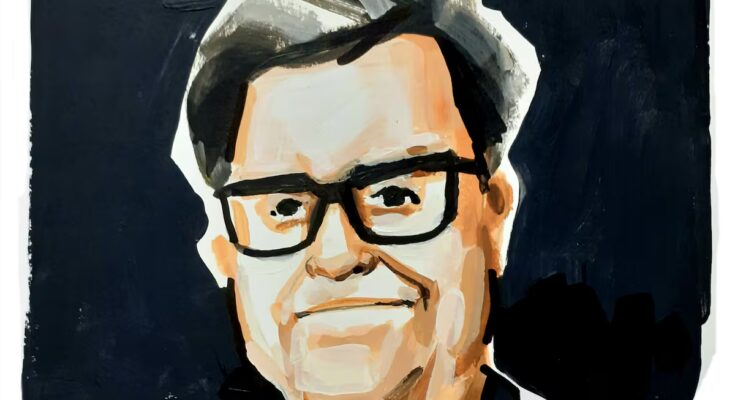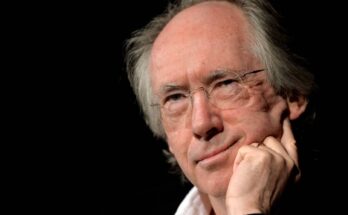Yann LeCun’s (Soisy-sous-Montmorency, France, 65 years old) obsession with artificial intelligence began as a child, after seeing 2001: A Space Odysseyby Stanley Kubrick, where a supercomputer rebels against the crew of a spaceship. “I found that in the 1950s and 1960s there were already people training machines instead of programming them,” he said last week on a panel at the Queen Elizabeth Engineering Prize: “I thought I was too lazy or too stupid to assemble an intelligent machine from scratch, so I thought it was better to have it train itself.” And so he did: LeCun is one of the godfathers of modern artificial intelligence and has held that role for the last 13 years at Meta. Now, far from Mark Zuckerberg’s new strategy, he aspires to fly solo and prepares the launch of a start which allows you to develop your big project: the models of the worldmodels capable of understanding the world and reasoning like a human being.
The French-American scientist grew up in the suburbs of Paris. His father, an engineer, instilled in him his interest in electronics from a young age. After high school he entered the Higher School of Engineers in Electrical Engineering and Electronics, one of the great schools French. In 1987 he received his doctorate in computer science from the Pierre and Marie Curie University in Paris. His work focused on machine learningnamely machine learning, which led him to meet Geoffrey Hinton, considered the godfather of artificial intelligence, and with whom he formed a tandem that has lasted for more than two decades. With him he shares – in addition to the Canadian Yoshua Bengio – a Turing Award, the Nobel Prize for Computer Science.
In 1988, after a year at the University of Toronto, he made the leap into private business. It started in teleco AT&T, where he conducted research on machine learning, neural networks, optical recognition, and image and video compression. In 2003, leaving AT&T, he was hired at New York University, where he continues to teach, a task he combined with the creation of several companies specialized in biometric authentication (Element) or even in the development of software AND hardware of musical production (MuseAmi).
In 2013 he made the leap to Facebook (before the parent company was called Meta), as director of artificial intelligence research. But why Facebook, a network of networks, when you can work at any big tech company? For a reviled concept: open source. This is what he said in a 2015 interview with New York Times: “AI will require input from the tech industry, academia and government. And it needs to be done openly. Apple is totally secretive, Google partly… Facebook has an open culture.” A lot has happened since then, and experts point out that this code is becoming less and less open, which could explain its imminent demise.
a free verse
The scientist is considered one of the godfathers of AI, but his visions make him a free verse. Firstly because he believes that LLMs, the language models that replace what we understand as AI – ChatGPT is powered by them – are a dead end: “It’s amazing how they work if they are trained on a large scale, but they are very limited. We see that these systems are hallucinating, that they don’t really understand the real world. They need huge amounts of data to reach a level of intelligence which, in the end, is not so great,” he told the magazine in February 2024. time.
His greatest successes suggest that, for him, achieving AGI (artificial general intelligence, capable of matching the human mind), has much more to do with the development of a machine that can understand and recognize the physical world around it, and not with a large language-based database: in 1989 he created LeNet-5, a system for recognizing characters written on checks. He contributed to the development of widespread image compression technology and worked almost all his life on speech or document recognition methods. He often jokes, in fact, that LLMs are no smarter than many animals: “Just by looking at how the world works and combining that with planning techniques, and maybe combining that with short-term memory systems, then we might have a path to not general intelligence, but, say, the intelligence of a cat.”
LeCun also differs because he believes that much of the social alarm around AI is exaggerated: while his former colleagues Hinton and Bengio – with whom he also shares a Princess of Asturias Award, along with Google DeepMind CEO Demis Hassabis – signed a manifesto highlighting the risks to society, he sent a letter to then US President Joe Biden asking him to embrace open source AI: “It should not be under the control of a few companies.” In another interview, the genius that child had fascinated is Hal, the computer killer 2001he said there are a thousand ways to create evil AI, but the question is how to make it good: “It’s not like one day we’re going to build a giant computer, turn it on, and the next minute it’s going to take over the world.”
LeCun’s departure is part of a shift in Meta’s strategy. The company has invested billions in AI and needs it to start delivering returns. The academic and quiet times of the Frenchman, who also does not believe in the LLMs on which his CEO is betting, are not part of these plans. In July Meta purchased 49% of ScaleAI, the start of the precocious genius Alexandr Wang, whom he appointed head of the AI (and, therefore, LeCun’s hierarchical superior). A silent dismissal. The corporate transaction cost him $14.3 billion. The rumors about the Frenchman’s departure, advanced by Financial timesresulted in a drop in valuation of over 30,000 million in just two sessions.
Language barriers
The distrust of LeCun’s linguistic models may have to do with his own biography. When he moved to the United States, he had to change his last name (surnamein French), because Americans thought the “Le” in Le Cun was his middle name. Space removed for ease of understanding. A typical act of a programmer.



